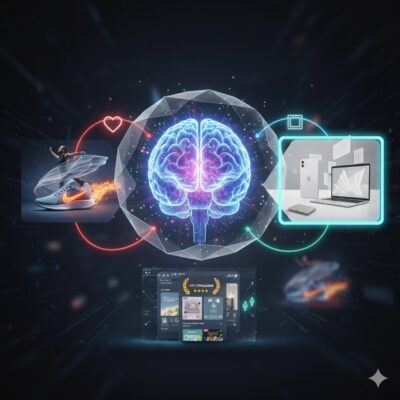Many people believe that purchasing decisions are the result of cold, logical analysis carried out by the brain. We compare prices, read reviews, and study specifications. Numerous neuromarketing studies have shown that in fact, most purchasing decisions are made before a person has time to think things through rationally. Our choices are the result of the interaction of emotions, habits, and signals.
We buy not because we have considered everything, but because we have felt something.
So how does the brain decide what to buy?
1. Emotions always precede logic
The first to react to any marketing stimulus is not the rational part, but the emotional part. It is this part that creates the initial feeling of “I like it” even before a person begins to think logically.
Scientists from Stanford University found during an experiment that when people see a desired product, the area of the brain responsible for the expectation of pleasure (nucleus accumbens) is activated. The decision to buy is formed even before the price or need is realized.
For example, Nike doesn’t just sell sneakers, it sells belief in one’s own abilities. The “Just Do It” campaign activates areas of the brain associated with motivation and self-affirmation.
When people see emotional stories of athletes, the brain associates the brand with determination, success, and inspiration. At the time of purchase, a person often chooses Nike not because of technical characteristics, but because of the emotional feeling of “I can do it too.”

2. The brain loves simplicity
Our brains don’t like overload. If the design, text, or packaging looks complicated, it simply “turns off attention.”
That’s why simple structures, clean colors, and clear messages build trust and comfort.
Apple is a prime example of a company that has built its success on simplicity. Minimalist product design, clean lines, and an intuitive interface create a sense of ease. This builds trust and motivates consumers to buy, even at a higher price than competitors.

3. We trust the choices of others
A person is a social being by nature. We subconsciously focus on the behavior of others, and we perceive popularity as confirmation of reliability. This effect is enhanced by neural mechanisms associated with a sense of belonging and approval.
On the Amazon or Rozetka platforms, products with “best-seller” labels sell much better. Even if the buyer does not analyze the characteristics, the very fact that “thousands of others chose it” is perceived as a guarantee of the right decision.
Therefore, the purchase decision is formed not only under the influence of logic. Emotions, ease of perception and social influence create a sense of the right choice. These factors determine whether a person will feel trust in the brand, whether he will remember it, and whether he will return again.
When a business takes into account these psychological mechanisms, it stops simply “selling”, and instead begins to build a deeper connection with the customer, receiving not only attention, but also loyalty. After all, the real decision to buy is not made when a person sees the price, but when they feel that it was created for them.








